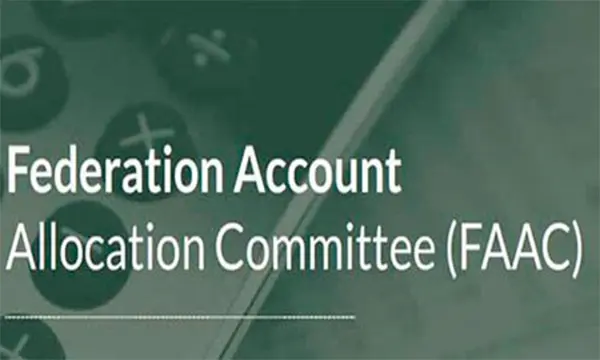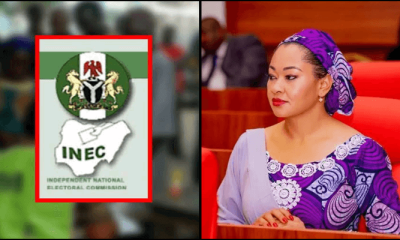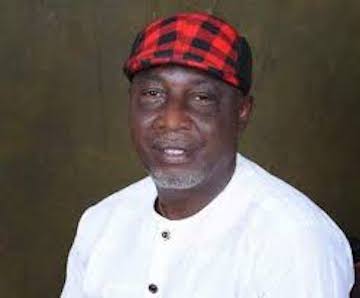COVER
IPPIS: Understanding the Position of ASUU and AGF Ahmed Idris

By Yushau A. Shuaib
The battle of wits between the Federal Government and the Academic Staff Union of Universities (ASUU) over the Integrated Payroll and Personnel Information System (IPPIS) may soon come to an end, with the recent compromise that seems to be close at hand.
Even though the Accountant General of the Federation, Ahmed Idris is being ferociously attacked by the leadership of ASUU over his insistence on the full implementation of the IPPIS across the board, the Office of the Accountant General of the Federation (OAGF), where IPPIS is domiciled, is also responsible for all receipts into and payments from the Federation and Consolidated Accounts.
The IPPIS was introduced in 2007 to provide accurate and reliable data on personnel in the public service, for the purpose of budgeting for recurrent expenditures and other challenges. The scheme is a form of identity system management aimed at providing a centralised database to support personal planning and decision-making, including the automated storage of personnel records to aid staff enrolment and monitoring, as well as to prevent wastage and leakages on the basis of factual personnel records and information.
Some of the features of the IPPIS are the facts that it captures facial images and fingerprints of government employees and stores them in a digitalised data-based library, which can be accessed with authorisation from anywhere.
President Muhammadu Buhari has always been passionate about IPPIS, so much that in his 2020 budget speech, he directed that all Federal Government workers must be enlisted in the scheme.
During a presentation of the Medium Term Expenditure Framework and Fiscal Strategy Paper (MTEF/FSP) in September 2019, the Finance minister, Zainab Shamsuna Ahmed, announced the deadline of October of the same year for all federal ministries, departments and agencies (MDAs) of government to enroll their staff on the IPPIS platform. She insisted that based on a presidential directive, staff members who were not captured on the automated payroll system would not be paid their salaries.
At a meeting with vice-chancellors, registrars and bursars of federal universities at the National Universities Commission Auditorium in Abuja in June 2019, the AGF, Ahmed Idris, told these senior university officials that the centralised payroll would be prepared by individual universities but coordinated through the IPPIS, while the total management of the human resources involved also rests squarely with the universities.
At subsequent meetings with the leadership of university-based unions, including ASUU, NASU, SSANU and NAAT in the same venue, Idris assured that the IPPIS platform would accommodate all financial peculiarities pertaining to university staff, including those involving sabbaticals, visitations, honoraria and other earned allowances. He added that deductions for the National Housing Fund (NHF), National Health Insurance Scheme (NHIS) Check-off and other dues from staff would be remitted to the appropriate accounts when due.
While appealing to them, AGF said the university community, being the bedrock of knowledge production and the centre of reforms that has always striven for probity, transparency and accountability, towards good governance, would contribute tremendously in bringing to bear all such unique qualities in the implementation of IPPIS.
In his remarks during the meetings, the Executive Secretary of the National Universities Commission (NUC) and the host, Professor Abubakar Rasheed said the IPPIS scheme would engender transparency, accountability and probity in government expenditure, as well as centralise the payroll systems that would address challenges affecting the country’s public universities.
The ASUU president, Professor Biodun Ogunyemi, at one of the meetings, expressed the fear that if implemented, IPPIS could erode university autonomy and the powers of University Councils.
Possibly what provoked the anger of lecturers with the AGF was when he allegedly issued a letter dated December 2, 2019, advising vice-chancellors that universities which were not yet enrolled on the IPPIS should do so promptly or face appropriate sanctions.
Many ASUU members appeared very furious with the threat. In a reaction, Professor Deji Omole, the ASUU chairman at the University of Ibadan, said it was unfortunate that vice-chancellors had now become errand boys who were being threatened by “an account clerk”.
Meanwhile, in rejecting IPPIS, Professor Ogunyemi considered it wrong for universities to adopt a payment platform that was not designed for the peculiarities of their system. According to him, the platform does not recognise the negotiated agreements that had been reached on allowances that were not academic in nature, and those relating to research journals, among others.
Some lecturers also pointed out that IPPIS is a one-line salary scale, in which taxes are even being deducted from allowances. As an alternative to IPPIS, ASUU produced and recommended the adoption of the University Transparency Account System (UTAS), regarded as a robust software solution that would be sensitive to the uniqueness of the university system in addressing personnel information and payment system, among other things.
It is gathered that the UTAS platform has been sent to the National Information Technology Development Agency (NITDA) for integrity tests to verify its efficacy and ascertain that the final product would pass the necessary technical requirements.
During recent closed-door meetings, the AGF appealed to ASUU executives to agree to receive their salaries through the IPPIS platform, pending when the UTAS will be ready for use after the integrity tests on it have been concluded. The Union is said to have rejected these pleas by arguing that the functionality of the IPPIS was not demonstrated to them before government started using it for workers, while equally wondering why the demands for the adoption of the UTAS became the basis for the stoppage of their salaries.
It is heart-warming that after extensive negotiations and foot-dragging, the Federal Government has finally accepted the demand of ASUU that its members be exempted from the IPPIS.
Even though 697 ministries, departments and agencies of government (MDAs) and 1,139,000 staff, including those of the Nigerian Police, para-military and military establishment have been enrolled on the IPPIS as at June, the Labour Minister, Senator Chris Ngige informed the public last week, that the government has also agreed to ASUU’s demand to pay the salary arrears of its members, from February to June, through GIFMIS, the old payment platform, until UTAS is ready for use. The government equally has agreed to lift the ‘no work, no pay’ policy, which necessitated the withholding of the salaries of striking lecturers in the first place.
While I pray and hope that the impasse between the Federal Government and ASUU would be resolved as soon as possible, no matter the eventual winner in this crisis, Nigerian youths, especially the students in public universities are the big losers, wasting eight-month at home, rather than being productively engaged in their citadels of learning.
I wish the accomplishments of the AGF in the last five years will not be rubbished or trivialised by certain unresolved issues. Even though the Federal Government extended his tenure for another four years in June 2019, I believe that it is however judicious to exit a scene when the ovation is loudest, especially as the AGF will clock the age of 60 on November 25.
The record of achievements and special interventions of Ahmed Idris, a chartered accountant and certified fraud examiner, on worthy causes, are quite numerous. Under his leadership, the Office of the Accountant-General of the Federation (OAGF) successful implemented a number of far-reaching reforms in public finance management (PFM), including the introduction of the IPPIS and the treasury single account (TSA); the adoption of the International Public Sector Accounting Standard (IPSAS), the Government Integrated Financial Management Information System (GIFMIS) and the Assets Tracking Management Project (ATMP); alongside the transformation of the Federal Treasury Academy, among others.
I will appeal to the Federal Government and ASUU to place the interests of the nation and those of young Nigerian students, who have experienced a very disturbing disruption of their education so far, above all other considerations, as they move forward in ending the ongoing impasse. May the best decisions for the ultimate good of the public prevail.
Yushau A. Shuaib; www.YAShuaib.com; Wuye District, Abuja.
COVER
FG, States, LGCs Share N1.818trn June Revenue

By Tony Obiechina Abuja
A total sum of N1.818 trillion, being June 2025 Federation Account Revenue, has been shared to the Federal Government, States and the Local Government Councils.The revenue was shared at the July 2025 Federation Account Allocation Committee (FAAC) meeting held in Abuja, in a statement by Bawa Mokwa Director of Press and Public relations in the Office of the Account General of the AGF during the weekend.
The N1. 818 trillion total distributable revenue comprised distributable statutory revenue of N1.018 trillion, distributable Value Added Tax (VAT) revenue of N631.507 billion, Electronic Money Transfer Levy (EMTL) revenue of N29.165 billion, Exchange Difference revenue of N38.849 billion and N100 billion Augmentation from Non-Mineral revenue.A communiqué issued by the Federation Account Allocation Committee (FAAC) indicated that total gross revenue of N4.232 trillion was available in the month of June 2025. Total deduction for cost of collection was N162.786 billion while total transfers, interventions, refunds and savings was N2.251 trillion.According to the communiqué, gross statutory revenue of N3.485 trillion was received for the month of June 2025. This was higher than the sum of N2.094 trillion received in the month of May 2025 by N1.390 trillion.Gross revenue of N678.165 billion was available from the Value Added Tax (VAT) in June 2025. This was lower than the N742.820 billion available in the month of May 2025 by N64.655 billion. The communiqué stated that from the N1.818 trillion total distributable revenue, the Federal Government received total sum of N645.383 billion and the State Governments received total sum of N607.417 billion.The Local government Council received N444.853 billion, while the sum of N120.759 billion (13% of mineral revenue) was shared to the benefiting State as derivation revenue.On the N1.018 trllion distributable statutory revenue, the communiqué stated that the Federal Government received N474.455 billion and the State Governments received N240.650 billion.The Local Government Councils received N185.531 billion and the sum of N118.256 billion (13% of mineral revenue) was shared to the benefiting States as derivation revenue.From the N631.507 billion distributable Value Added Tax (VAT) revenue, the Federal Government received N94.726 billion, the State Governments received N315.754 billion and the Local Government Councils received N221.027 billion.A total sum of N4.375 billion was received by the Federal Government from the N29.165 billion Electronic Money Transfer Levy (EMTL). The State Governments received N14.582 billion and the Local Government Councils received N10.208 billion.From the N38.849 billion Exchange Difference revenue, the communiqué stated that the Federal Government received N19.147 billion and the State Governments received N9.712 billion.The Local Government Councils received N7.487 billion, while the sum of N2.503 billion (13% of mineral revenue) was shared to the benefiting States as derivation revenue.The communique stated that the Federal Government received a total sum of N52.680 billion, the State Governments received N26,720 billion and the Local Government Councils received N20.600 billion from the N100 billion Augmentation.In June 2025, Companies Income Tax (CIT), Petroleum Profit Tax(PPT), Electronic Money Transfer Levy(EMTL) increased significantly while Oil and Gas Royalty, Value Added Tax( VAT), Import Duty, Excise Duty and CET Levies decreased considerably.COVER
Senate, Natasha Thread Words over Resumption as Court Ends Suspension

By Eze Okechukwu, Abuja
The Senate has warned suspended Kogi lawmaker, Senator Natasha Akpoti-Uduaghan to desist from forcefully resuming her legislative duties on Tuesday until the expiration of her suspension.Chairman of the Senate Committee on Media and Public Affairs, Senator Yemi Adaramodu gave the warning in a statement issued on Sunday.
While insisting that no valid court order mandates her immediate recall, Adaramodu emphasised that the Senate remains committed to due process and the rule of law. He said, “The Senate of the Federal Republic of Nigeria wishes to reaffirm, for the third time, that there is no subsisting court order mandating the Senate to recall Senator Natasha Akpoti-Uduaghan before the expiration of her suspension.”The clarification followed media reports quoting the embattled lawmaker as saying she would return to the Senate on Tuesday, allegedly based on a judgment by Justice Binta Nyako of the Federal High Court in Abuja.However, Adaramodu said the Senate had previously issued two public statements after the court ruling and the release of the Certified True Copy of the Enrolled Order, making it clear that no positive or mandatory directive was issued against the Senate regarding her recall.“Rather, the Honourable Court gave a non-binding advisory urging the Senate to consider amending its Standing Orders and reviewing the suspension, which it opined might be excessive.“The Court, however, explicitly held that the Senate did not breach any law or constitutional provision in imposing the disciplinary measure based on the Senator’s misconduct during plenary,” he said.The Senate further noted that the same court found Akpoti-Uduaghan guilty of contempt and imposed penalties, including a N5m fine payable to the Federal Government and a mandatory apology in two national newspapers and on her Facebook page, a directive that has reportedly not been complied with.“It is therefore surprising and legally untenable that Senator Akpoti-Uduaghan, while on appeal and having filed a motion for stay against the valid and binding orders made against her, is attempting to act upon an imaginary order of recall that does not exist,” the Senate spokesman added.He warned that any move by the suspended lawmaker to “storm the Senate next Tuesday under a false pretext” would be premature, disruptive, and a breach of legislative order.“The Senate will, at the appropriate time, consider the advisory opinion of the court on both amending the Standing Orders of the Senate, her recall, and communicate the same thereof to Senator Akpoti-Uduaghan.“Until then, she is respectfully advised to stay away from the Senate chambers and allow due process to run its full course,” the statement concluded.I’ll resume on Tuesday – Natasha Akpoti-Uduaghan Dares SenateSuspended Kogi Central Senator, Natasha Akpoti-Uduaghan, has vowed to resume her duties in the Senate on Tuesday.Akpoti-Uduaghan said her resumption was in line with a court decision.She disclosed this in a chat with journalists while in her constituency for a training programme on Saturday.The embattled lawmaker said the suspension limited her from performing her legislative duties.Natasha disclosed that she has officially informed the Senate in writing about her intentions to resume.She noted that despite the controversy surrounding the ruling of the Abuja Federal High Court, she will resume on Tuesday.“I have pretty much two months more before the six months expire. However, I have written to the Senate again telling them that I’m resuming on the 22nd, which is on Tuesday, by the special grace of God.“I will be there, because the court did make the decision on that,” she said.COVER
Dangote Refinery Targets 700,000bpd Capacity

By David Torough, Abuja
The Dangote Petroleum Refinery is undergoing a major capacity upgrade to increase its output from 650,000 to 700,000 barrels per day (bpd), according to Alhaji Aliko Dangote, President of the Dangote Group. The expansion, currently underway at the Lekki Free Zone in Lagos, is expected to be completed by the end of 2025.
Dangote, who spoke during a recent facility tour with stakeholders and journalists, explained that the upgrade is aimed at maximising the refinery’s potential, despite ongoing modifications slowing its ability to operate at full capacity this year. “As of July, our Residue Fluid Catalytic Cracking (RFCC) unit is running at 85 per cent capacity. Once modifications are complete, we expect to exceed the original design and hit 700,000bpd,” he said. The RFCC process converts heavy crude residue into valuable lighter fuels such as gasoline, diesel, and LPG.Dangote disclosed that the refinery sourced 19 million barrels of crude oil from the United States between June and July 2025 alone. “We bought 10 million barrels in July, which accounts for about 55 per cent of our current crude needs,” he said.He also reflected on the journey of building the $20 billion refinery, revealing it began after the late President Umaru Musa Yar’Adua halted his attempt to purchase Nigeria’s state-owned refineries in 2007.“Had I known the complexity and challenges involved, I might never have started. But we pushed through the setbacks, and today we’ve proved that nothing is impossible,” Dangote remarked.He further noted that most African nations are still dependent on imported refined fuels, with the exception of Algeria and Libya. “We needed to change that narrative. Only one refinery is currently operating in South Africa. So, we decided to take the risk,” he added.Dangote criticised what he described as “foreign sabotage through importation,” claiming some external forces use large volumes of imports to undermine domestic industries in Africa.In a related development, Nigeria has secured over $20 billion in new investment commitments from China to support key sectors of the economy, including agriculture, mining, steel, energy, and automotive manufacturing.Director General of the Nigeria-China Strategic Partnership (NCSP), Joseph Tegbe disclosed the breakthrough over the weekend, noting that the funding was the result of sustained bilateral engagements following the elevation of Nigeria-China ties to a Comprehensive Strategic Partnership.“These are real commitments, not just pledges,” Tegbe said. “We’re talking about tangible projects that will create jobs, boost local production, enhance food security, and make Nigeria a leading manufacturing hub in Africa.”Tegbe added that the NCSP is driving efforts to ensure the success of Forum on China-Africa Cooperation (FOCAC) projects in Nigeria, while also leveraging Chinese expertise and financing to reposition the country’s industrial base.The partnership also aims to open Asian markets to Nigerian-made goods, enhancing exports and creating value-added supply chains in line with President Bola Tinubu’s Renewed Hope Agenda.“We’re not only building bridges with investors; we’re delivering results that will transform Nigeria’s economy for generations to come,” Tegbe said.

























